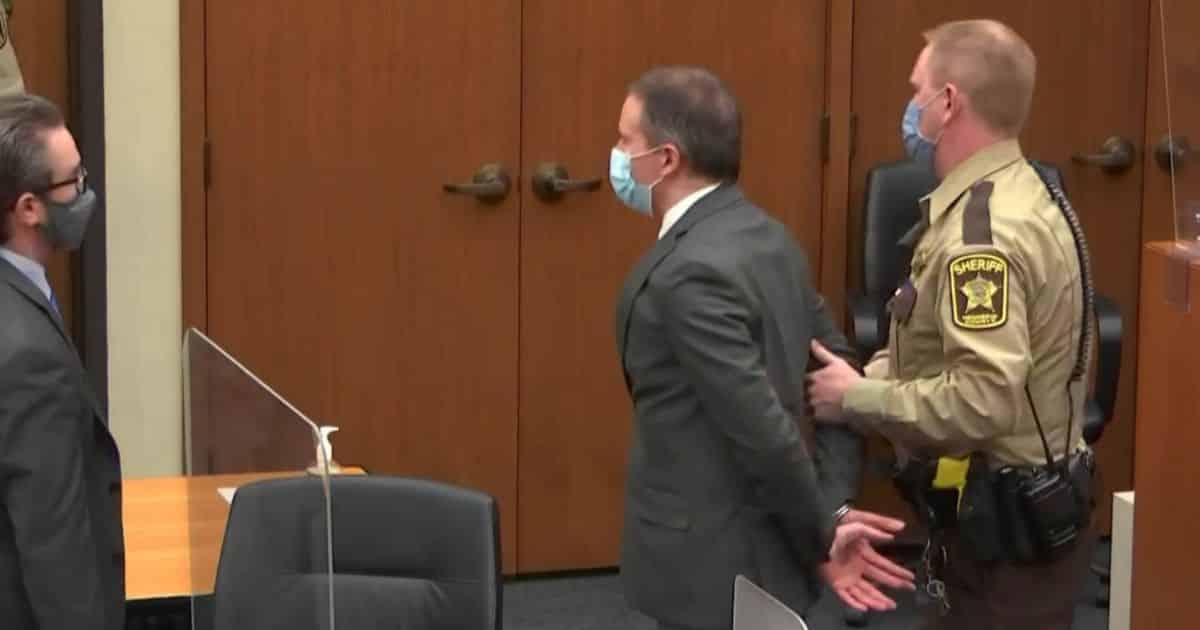On Tuesday, former Minneapolis police officer Derek Chauvin was convicted of second-degree manslaughter, second-degree murder and third-degree murder in the death of George Floyd.
Political commentators have been split on the validity of the verdict — the general consensus has been that, while Chauvin’s actions may very well have qualified as second-degree manslaughter, they did not appear to fit the definition of either second-degree or third-degree murder.
What also remains in question is whether or not Chauvin’s sentence will stick.
Several facts suggest the jury may have been compromised, which may lead to the entire case being overturned in appeal.
The Validity of the Two Higher Charges Is in Question
Prior to their deliberation, Judge Peter Cahill explained to jurors that in order to convict Chauvin of the various crimes he was charged with, they must first determine whether his actions fit the bill of each crime definitionally.
In order to convict Chauvin of second-degree murder, Cahill told jurors they must have found that the former officer intended to commit an assault that could cause bodily harm, according to USA Today.
He also told jurors that, in order to find Chauvin guilt of third-degree murder, they must have found him to have been exhibiting a depraved mind with reckless disregard to human life.
Judge Peter Cahill revoked Derek Chauvin’s bail after he was convicted of murdering George Floyd. Chauvin was placed in handcuffs and led away from the courtroom after the verdict was read. https://t.co/Vu3VFM4VWb pic.twitter.com/TpFgu69RsN
— The New York Times (@nytimes) April 20, 2021
This is where many conservative and legal commentators find the jury’s verdict to be troubling. While the case can easily be made that Chauvin’s actions were negligent, excessive and criminal, the prosecution didn’t seem to prove that he intended to commit a crime or that he was exhibiting a depraved mind.
Riots Averted, Celebrations Ensued
Many expected riots to ensue throughout Minneapolis following the reading of the verdict.
Because of this, on Monday, the day before the verdict was announced, Democratic Minnesota Gov. Tim Walz declared a state of emergency in the counties around Minneapolis, according to Fox News.
Likely due to the fact that Chauvin was found guilty on all counts, riots did not end up occurring in the city (there were riots in Portland, Oregon, however).
While this may seem like a good thing, the lack of violence carries with it a troubling realization — should other cases of this nature arise in the future, jurors may opt to rule against police officers with the assumption that, if Black Lives Matter protesters are appeased, widespread riots may be avoided.
It is for this reason, among others, that some believe Derek Chauvin’s defense may have a strong case for appeal.
Democrats May Have Handed Chauvin a Case for Appeal
Despite the incredibly high-profile nature of the Chauvin trial, jurors in the case were only partially sequestered. Throughout the trial, they were allowed to go home at night, according to KARE-TV.
In addition, Democratic Rep. Maxine Waters of California visited Minnesota and told protesters they should get “more confrontational” if the trial were not to go the way anti-police activists wanted.
In the days prior to Waters’ comments, riots took place in Brooklyn Center, Minnesota — a city on the northwest border of Minneapolis — during which more than 20 stores were looted and a nearby police precinct was fired upon.
In Thursday interviews, it was also revealed that Lisa Christensen — one of two alternate jurors in the trial — said she was afraid to serve on the jury because she “did not want to go through the rioting and destruction again” and “was concerned about people coming to [her] house if they were not happy with the verdict.”
All of this leads many, including Chauvin’s attorney Eric Nelson, to believe the jury may well have been influenced.
“There is a high probability that members of this jury have seen these comments, are familiar with these comments and things that have happened throughout the course of this trial,” Nelson said in regards to Waters’ comments.
Although Cahill denied Nelson’s motion to declare a mistrial, he did agree the Democrat may have given Chauvin a second chance on appeal.
“I’ll give you that Congresswoman Waters may have given you something on appeal that may result in this whole trial being overturned,” he said.
This article appeared originally on The Western Journal.

























 Continue with Google
Continue with Google